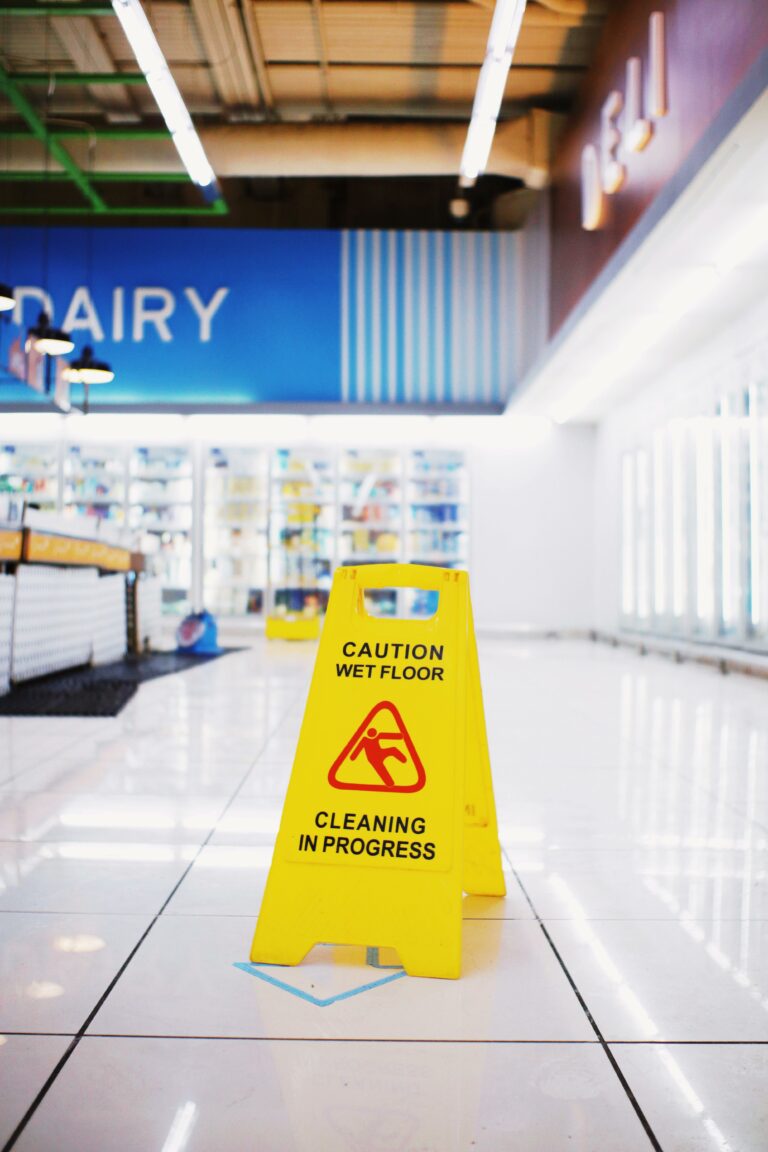Slip and fall accidents can cause injuries that may result in expensive medical costs and lost wages. Various conditions can cause a slip and fall accident at a grocery store, including wet floors, changes in floor height, and packages left on the floor. A slip and fall lawyer can analyze liability in your slip and fall case and fight for compensation for your damages.
Unsafe Conditions and Premises Liability
Customers may encounter various unsafe conditions at a grocery store. These can include snow and ice accumulation in the parking lot, tripping hazards, broken glass on the ground, and spills that were not properly marked and cleaned up. Failure to limit or control crowds during high-traffic events may also result in a slip and fall case. Premises liability states that property owners, including grocery store owners and managers, have a responsibility to keep their premises safe. If there is an unsafe condition on the property, the store owner should warn customers and resolve it in a reasonable amount of time.
Determining Liability
A lawyer from Philly Slip and Fall Guys can help you determine liability in your slip and fall case. Liability is generally determined based on negligence. The store owner or an employee must know about the hazard from having caused or seen it to be at fault. They may also be liable if they did not know about any hazard or should have discovered it by the time the accident occurred. The property owner is entitled to a reasonable amount of time to discover and fix unsafe conditions.
After your accident, the insurance adjuster may ask you about your conduct leading up to the incident. They may ask questions about what you were doing and why. They might also ask whether there were any warnings about the hazard, and whether you were distracted when you fell. The adjuster might use your answers to argue that you were at fault for the accident.
Using Evidence To Prove Negligence
Evidence demonstrating the store owner’s failure to keep their premises safe can help your lawyer establish the grocery store’s negligence. Types of evidence that can help establish negligence include:
Photos and Videos
Clear photos of the hazardous condition, such as pictures of the spill or uneven floor, can provide beneficial visual evidence for your case. Videos, such as surveillance camera footage, show the events that led to the slip and fall. Photos and videos help establish the stores’ negligence in maintaining a safe environment for their customers. They do this by showing proof of the dangerous condition and its surroundings.
Witness Statements
If anybody witnessed your fall, ask them for their contact information. They may be able to provide valuable testimony that supports your account and corroborates the circumstances of the accident. This provides additional credibility to your claim and makes it easier to prove that the grocery store was negligent.
Maintenance Records
Grocery stores are expected to perform regular maintenance on their property. Maintenance records, including repair invoices, cleaning logs, and inspection reports, provide insight into the store’s maintenance practices. Lapses or discrepancies in maintenance records can indicate negligence on the store owner’s part. Proving the owner did not conduct regular inspections or failed to address known hazards can benefit your case.
Contact a Slip and Fall Lawyer
Store owners and employees have a responsibility to keep you safe. Analyzing liability in grocery store slip and fall accidents involves examining evidence to determine whether the store owner was negligent. A slip and fall lawyer from Philly Slip and Fall Guys can help you determine liability to improve your chances of receiving compensation for your case. Contact us today to receive a free evaluation.

